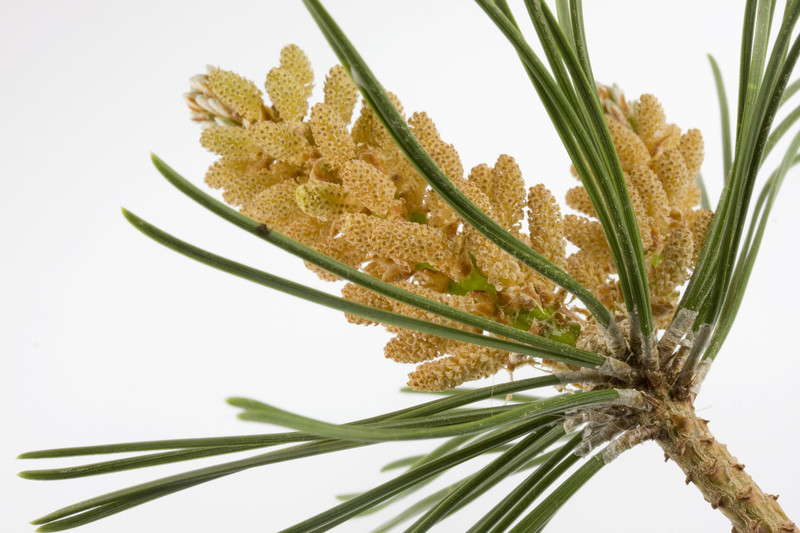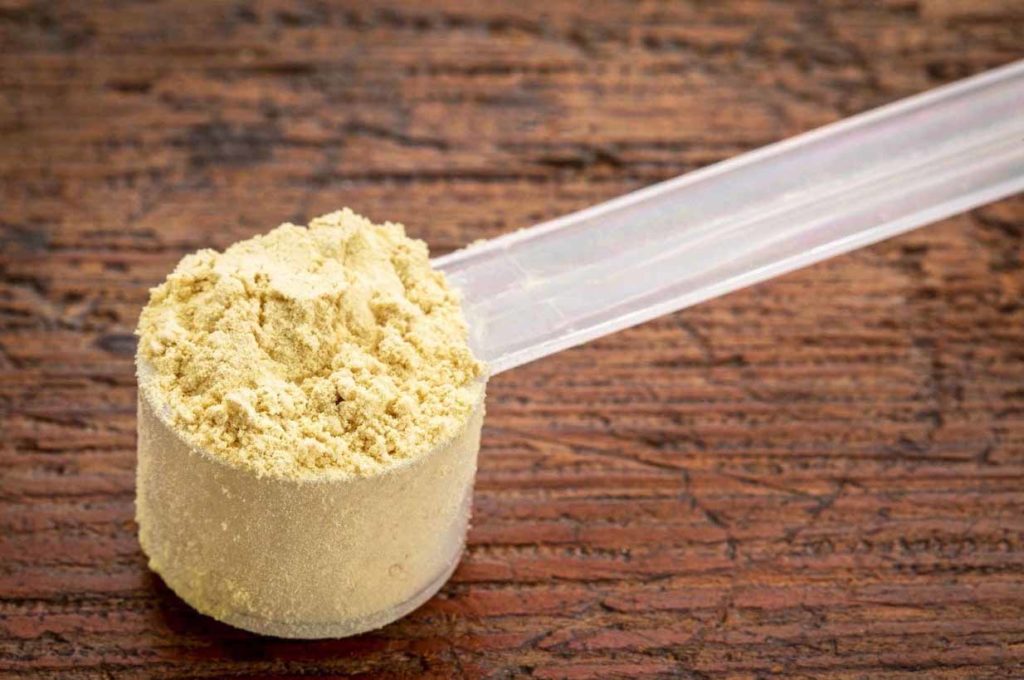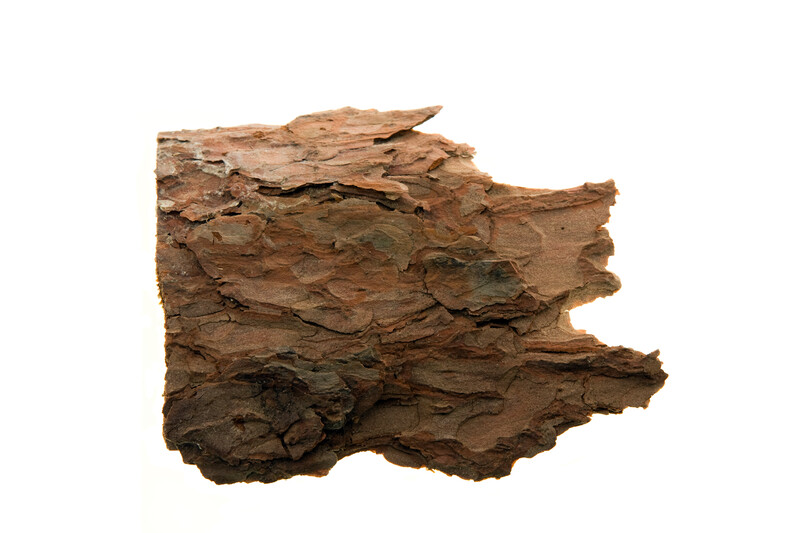(Article medically reviewed by Dr. Zac Hyde M.D)
If you’re wondering what the difference is between pine bark vs pine pollen, look at it like this…
Pine bark is made from the skin, or bark of the pine tree.
And this extract contains a substance called procyanidolic oligomers, also found in grape seed extract.
And this compound is a potent anti-inflammatory. Pine bark is also high in antioxidants.

Working together, these agents appear to stimulate the immune system to protect against atherosclerosis.
So in essence…
Pine bark keeps your pipes clear and functioning properly, allowing for more blood flow and stronger erections.
Pycnogenol is also made from pine bark.
Pycnogenol is simply the trademarked name for pine bark extract made from the French Maritime Pine tree.
Both Pycnogenol and regular pine bark extract contain similar compounds.
So in theory, a high quality pine bark extract should be just as effective as its higher priced cousin, Pycnogenol.
Pine pollen on the other hand…
Is made from the pollen of the pine tree gathered in spring when the pine trees are reproducing.
And this Tree Sperm is loaded down with hormones and other agents that humans respond extremely well to.
The phyto-androgens in the pollen can have a powerful positive impact on hormones and erections in some men.
From more testosterone, to less estrogen to more frequent morning wood.
Pine pollen ranks at the top of list of the most potent sex boosting herbs out there.
Now here’s part 2…
Pine Bark vs. Pine Pollen
If we think about pine trees at all, it’s typically as a hazard on the golf course or a source of excellent landscaping material.
But as some men are finding out, those tall trees have some pretty potent properties – especially when it comes to penile health.
You see, for thousands of years, different cultures have been using pine bark and pine pollen for many sex-related ailments.
From low testosterone to erectile dysfunction, these miracle substances have some astonishing effects.
In this article, we’ll discuss what each of these plant byproducts actually does, how they differ, and which one can provide the best solution for you.
Pine Trees as Medicine

There are something like 100 different species of pine trees found throughout the Northern Hemisphere.
While similar, each has its own name, genus, and specific nutritional properties. So, before you go all “Paul Bunyan” on your backyard looking for magical “sex sap,” you need to know that not pine trees have the properties we’re looking for.
Luckily, everyone from the ancient Chinese to the Native Americans has used various aspects of this plant as either food or medicine, and have already identified the species that offer the best results.
Currently, most medicinal supplements come from the French Maritime Pine, which can be found all along the Mediterranean coastline.
Though nearly every portion of this tree has some beneficial use, it is the pollen and bark that are most prized.
Not only are both edible, but they are chock full of compounds, antioxidants, and nutritional properties that manufacture some stunning results in humans.
Pine Bark FAQ
Pine bark extract is produced by grinding the bark of the tree, then washing and soaking it until a fine powder is derived.
The origins of pine bark’s use as a medicine are unknown, but a French scientist in the 1940s was the first to do any serious studies on the substance.
He found that the bark was rich in polyphenols, which are also in medicinal foods like berries, tea, and dark chocolate, as well as antioxidants, vitamins, and minerals.
According to studies like this one, published by the American Society for Pharmacology and Experimental Therapeutics…
Pine bark has great potential as an anti-microbial, anti-inflammatory, and anti-cancer treatment.
Moreover, it’s all-natural, it is tolerated extremely well by humans, boasting few if any adverse reactions.
In practice, pine bark extract has proven to be even more impressive.
As Pycnogenol (its extract form), it can be used in conjunction with arginine to combat erectile dysfunction.
You see, this potent medical compound has huge benefits for heart and artery health.
Not only does it lower blood pressure, but it improves blood flow to the legs and other extremities.
One major study found that it even protects against blood clots and coronary artery disease (source).
Of course, blood flow is of big concern to men who want quality erections.
Whether you’re suffering from ED or merely missing the rock-hard erections of their your, pine bark extract can definitely help.
By improving the flow of oxygen-rich blood to the corpora cavernosa and other penile tissues, it can strengthen these vessels to allow for harder, bigger, and longer-lasting hard-ons.
Pine Pollen vs Pine Bark (Hormones)
Pine pollen is a completely different beast from pine bark, but it too has the potential to provide some stimulating sexual side effects.
As you might remember from science class, pollen is nothing more than the plant version of sperm.
For this reason, it is absolutely stocked to the gills with hormones, specifically testosterone, DHEA, androstenedione, and androsterone.
Now, let’s be clear – plant hormones, or “Phyto androgens,” and human hormones are very different.
However, that doesn’t mean that they don’t interact in some pretty amazing ways.
For example, supplementing with pine pollen doesn’t interfere with your body’s normal testosterone production.
This means that your testes keep right on pumping out your own natural stuff, while you enjoy a higher sex drive, better muscle development, and more.
These phyto androgens, combined with other nutrients in PP are also extremely useful when it comes to reducing estrogen levels.
As most of you know, male estrogen has an inverse relationship with testosterone.
If it gets too high, we can end up suffering a variety of effects, including ED.
Lastly, it’s important to note that supplementing with pine pollen is great for your sperm.
Not only does it increase motility, but it helps contribute to larger, healthier loads.
One study on the effect of pine pollen found it to have significant “anti-aging” effects (source).
Specifically, it delayed aging effects in both neural and inflammation systems.
Though the findings are early, it may become a significant factor in our ongoing fight to look and feel younger.
Obviously, stronger and stiffer erections can be a big part of that equation too!
Pine Pollen or Pine Bark?
Clearly, the pine tree has a lot to offer men of all ages and sexual situations.
That said, there are some marked differences between what pine pollen and pine bark can do.
And while taking both at the same time isn’t likely to result in any health issues, you might see better results by tailoring your supplementation regimen to your specific needs.
For example:
Pine Bark Uses

This is a more physical approach to penile health.
With its high antioxidant levels and direct effects on heart and artery health, pine bark is ideal for men who are suffering from ED caused by physical ailments.
That is, former smokers, overweight individuals, or those who have a history of circulatory problems.
Combined with diet and exercise, pine bark could pave the way to stiffer erections and better overall sexual performance.
Pine Pollen Uses
This supplement is perfect for men who are suffering from Low T or whose ED problems are less physical in origin.
By ramping up your testosterone levels while still allowing your testes to do their thing, you can take an all-natural, pill-free approach to tackling various erectile issues.
Plus, by keeping your estrogen levels in check, pine pollen can help you avoid age-related physical problems like the development of a beer gut or man boobs.
Conclusion:
Modern science has yet to catch up with what some ancient peoples knew thousands of years ago: pine trees provide a cornucopia of health and sexual benefits.
After all, supplementing with pine bark and pine pollen isn’t just great for your dong, but for your heart, lungs, prostate, and liver.
Whether you’re getting older or just feeling that way, all-natural supplements are a wise thing to consider.
Like the trees themselves, you might find yourself “standing tall” again in no time.
